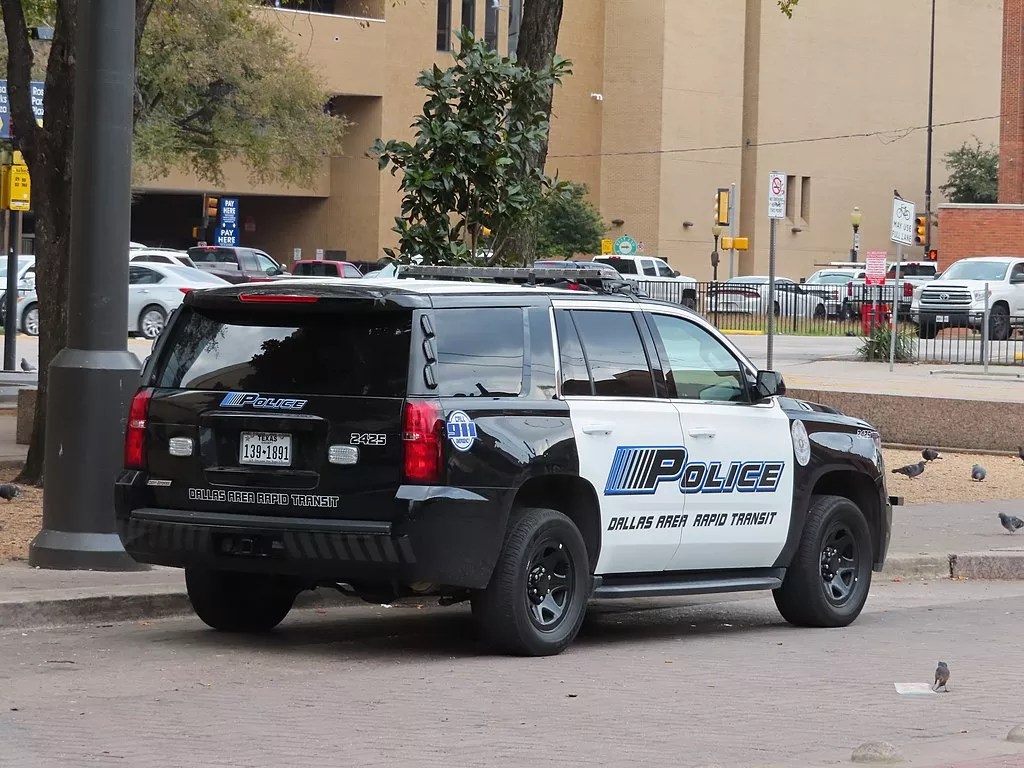
Jason Lawrence, CC BY 2.0, via Wikimedia Commons

Audio By Carbonatix
Last month, Dallas City Council member Jesse Moreno published a sobering call to action in The Dallas Morning News opinion section, the thesis of which was that the city’s approach to solving homelessness isn’t working. City leaders need to find new avenues to reach one of Dallas’ most vulnerable populations, urged Moreno, who chairs the council’s housing and homeless solutions board.
But it isn’t just the City Council that is struggling to determine how to best serve Dallas’ unhoused. According to a memo filed last week by Dallas Fire Chief Dominique Artis, the Dallas Area Rapid Transit’s pilot community-response program – which deployed teams of DART police officers, Parkland behavioral health clinicians and Dallas Fire Rescue paramedics along the DART system to aid individuals experiencing homelessness or mental health conditions – ended on Sept. 27.
Artis’ memo states that the program “did not achieve the anticipated level of success that would justify its financial impact.” A spokesperson for DART disputed Artis’ account of the program, stating that, as a pilot program, the Public Transit Multi-Disciplinary Response Team was planned to be disbanded at the end of the last fiscal year and the program’s success has not yet been evaluated. DART officials are “working to find an alternative” program, the spokesperson added, which they hope to have in place within the next month.
Details of such a program are unclear, but what is certain is that funding could play a factor in who responds to DART riders experiencing homelessness or mental health conditions.
“Any program like this is an investment, and so we have to be very careful about thinking through what is the biggest return on investment as far as a program, and how do we plan for something that can be put in place to move forward,” the DART spokesperson told the Observer. “It’s difficult to not have that answer of what that looks like, especially given the current financial situation across the board.”
DART is in a tricky spot, financially. Over the past year, a handful of Dallas suburbs have moved to reduce their funding contributions to the agency, an issue that would have to be approved by the DART board, and one that some cities have threatened to take to the Texas Legislature. The potential of lost funding has resulted in an uneasy DART board and a complicated budget season.
And as neighbor cities evaluate the benefit DART serves their populations, security has been a key factor in discussions. In a July Farmers Branch City Council meeting, council member Richard Jackson seemed to point to safety issues in the areas surrounding DART trains, stating that after 40 years, DART “can’t seem to police this parking lot” surrounding a Farmers Branch station.
Jackson then rebuked “all the trash that comes up here on [DART] trains,” a comment that was deemed offensive by fiery Reddit users and which Jackson later told The Dallas Morning News was meant to refer to litter, not people.
Safety is something that DART has worked to address in recent years. Increased security officer staffing, upgraded camera systems and a higher rate of arrests have all been signals of DART’s invigorated focus on safety, as was the Public Transit Multi-Disciplinary Response Team.
With the dissolution of the team, individuals experiencing homelessness or mental health conditions will be met solely by a DART police officer, the DART spokesperson said.
It’s a step back for Dallas, warns Amos Irwin, who serves as the community response program director with the Law Enforcement Action Partnership. Irwin is a staunch advocate for community-based response teams for nonviolent police calls, an initiative that has gained nationwide traction since 2020.
“One of the many things that [the death of George Floyd] set in motion was widespread public support for seeking [policing] alternatives,” Irwin said. “One of the key [questions] was why do we have police responding to all these things that don’t need police to respond to them?”
Community response teams, which have been successful in cities like Eugene, Oregon; Albuquerque, New Mexico; and Dayton, Ohio, send teams of non-officers to respond to low-level 911 calls, such as neighborly disputes. It’s an arrangement that is positive for both communities and police departments, many of which are facing a nationwide staffing shortage, Irwin believes. In instances where weapons, violence or a crime aren’t a concern, police shouldn’t be the first person sent to a scene, he believes.
That includes calls related to mental health, which have historically been answered by armed police officers. Responding to individuals experiencing a mental health crisis has become a significant aim of many of the programs, a change that Irwin believes helps to de-escalate situations where an individual’s actions may be unpredictable.
“Deescalation is the goal, we all agree on that. It’s not necessarily your average police officer’s fault, but when people see police officers, especially people who have had prior interactions with the police, do they feel naturally calmed or more upset?” Irwin said. “Generally it’s more upset if an officer has been called to deal with them, and so many of these people have had prior interactions.”
During the pilot program’s tenure, responders would offer individuals aid and resources, and would refer homeless individuals to nearby homeless shelters. Housing nonprofits OurCalling and The Bridge were collaborating with the program, and while officers were still responding to calls with the Public Transit Multi-Disciplinary Response Team – something community response programs would advise against – they were also receiving de-escalation training with Parkland clinicians, the DART spokesperson said.
Now, those officers will be on their own when responding to riders exhibiting signs of mental health crisis or homelessness until DART is able to determine whether community-based response is the best fit for Dallas’ trains and buses.